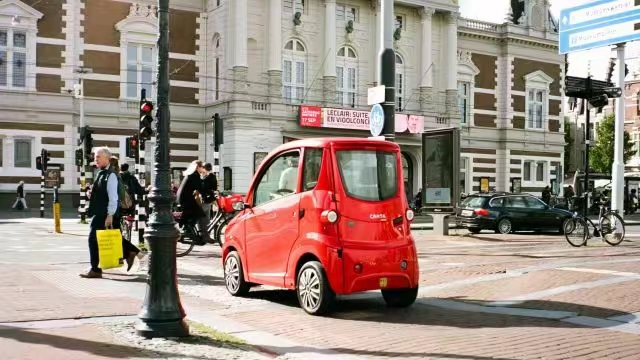
In the global electric vehicle market, Tesla has become a leader in the industry with innovative technology and unique business models. However, Tesla has recently encountered an unprecedented crisis of trust in the German market. According to a survey involving more than 100000 Germans, 94% of Germans said they would not buy Tesla's cars again, which was a shocking result and also triggered people's in-depth thinking about Tesla's predicament in the German market.
Tesla is facing a crisis of trust in Germany, which is closely related to the political stance and words of its CEO Elon Musk. Musk has been deeply involved in politics in recent years, openly supporting far right parties. He once publicly supported the German far right party, the Alternative for Germany (AfD), and claimed that "only AfD can save Germany", which directly angered European society. As the initiator of World War II, Germany has a profound historical memory and vigilance towards Nazi and far right ideologies. Musk's statement seriously hurt the feelings of the German people and caused the Tesla brand's image in the minds of German consumers to plummet.
In addition, Musk's inappropriate remarks in other political events have further intensified the German public's resentment towards him and Tesla. For example, some of his controversial political views expressed on social media, and even being accused of making "Hitler style" salutes, have made it difficult for the German people to accept, leading to an unprecedented crisis of trust for Tesla in the German market.
As a powerhouse in the automotive industry, Germany has strong domestic automotive brands. In the field of electric vehicles, traditional car companies such as Volkswagen, BMW, and Mercedes Benz have increased their investment and launched a series of competitive electric vehicle products. These local brands have deep accumulation and advantages in technology research and development, production and manufacturing, after-sales service, etc., which can better meet the requirements of German consumers for car quality and performance.
Tesla's product quality issues have always been a concern, and the German market is no exception. In recent years, Tesla has frequently encountered quality issues, such as continuous vehicle recalls. Tesla has announced multiple recalls of related models within 2024, involving various safety hazards such as tire pressure monitoring system warning light issues, drive inverter failures, and delayed rearview camera images. These quality issues not only affect consumers' normal use, but also cause serious damage to Tesla's brand image.
In addition, Tesla also has some shortcomings in its production process. For example, some consumers have reported issues with Tesla vehicles such as rough assembly processes and poor interior quality. For German consumers who value quality and craftsmanship, these issues are undoubtedly intolerable, further reducing their trust in Tesla.
After sales service is one of the important factors affecting consumers' car purchase decisions, but Tesla's after-sales service in Germany has many shortcomings. On the one hand, Tesla's charging network layout in Germany lags behind and cannot meet consumers' daily charging needs. In contrast, German domestic car companies and other competitors have invested heavily in the construction of charging facilities, providing consumers with more convenient charging services.
On the other hand, Tesla's after-sales service response is slow and maintenance costs are high. When consumers' vehicles have problems, they often need to wait for a long time to be resolved, which brings great inconvenience to consumers. Moreover, Tesla's maintenance costs are relatively high, which increases the cost of use for consumers and makes many German consumers hesitant to use Tesla.
Germany has a unique automotive culture, and consumers have extremely high demands for the quality, performance, and safety of cars. As a company from the United States, Tesla did not fully consider the cultural differences when entering the German market, and did not fully meet the needs of German consumers in product design, marketing strategies, and other aspects.
Tesla's trust crisis in Germany is the result of multiple factors working together. Political factors have damaged Tesla's brand image, intensified market competition has put pressure on its products, product quality issues and after-sales service shortcomings have reduced consumer trust, and cultural differences have hindered its deep development in the German market. For Tesla, in order to regain consumer trust in the German market, effective measures must be taken to address the various problems currently faced. Otherwise, its prospects in the German and even the entire European market will not be optimistic.

On the morning of November 18th local time, the stock markets of Japan and South Korea opened with a sharp decline.
On the morning of November 18th local time, the stock marke…
Countless AI agents are transitioning from isolation to col…
In November 2025, a sudden political storm swept through th…
The data recently disclosed by South Korea's Ministry of La…
Recently, according to The US industry media SeafoodSource,…
As the gunfire in the Gaza Strip gradually subsided in the …